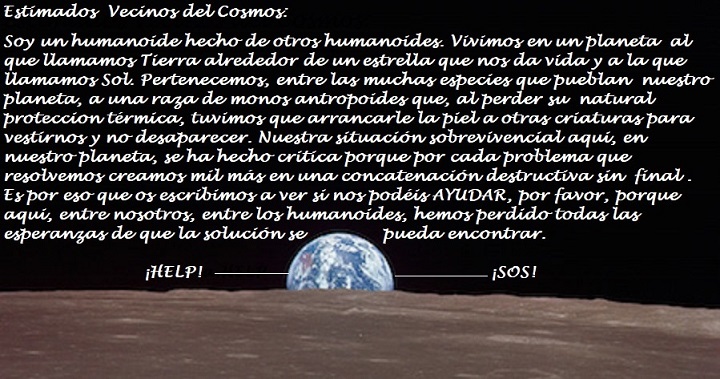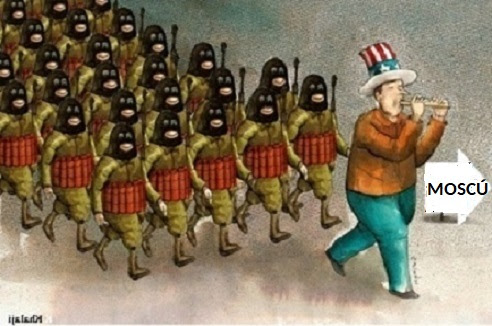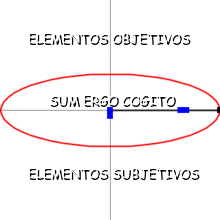Franz Mehring
On Race as a Social Construct
Race is not a scientifically valid concept; it developed as a justification for exploitation and slavery.
As early as 1893, the German Marxist leader Franz Mehring pointed to the fact that race is a social-historical concept in his work On Historical Materialism, which we excerpt below.
Historical materialism sees historical development in the gradual progression from the domination of man by nature to the domination of nature by man.
This progress is one and the same as the progress of countless tribes of men, who developed out of the animal world to the one social community, which some day will encompass the whole of the human race. The course of history is not the "differentiation of the homogenous, but the assimilation of the heterogeneous." That differentiation was the legendary conception, as it is found in the Biblical genealogical construction of Ham, Shem and Japhet, in Tacitus' German genealogy of the three brothers Ingaev, Istaev and Hermin, or the Slav Czech, Lech and Russ.
This assimilation, however, is a scientific conception derived as much from what daily takes place before our eyes, as it is from the investigations into the history of primitive man.
It is one of the insoluble contradictions in which mechanical materialism moves in the field of history, that it totally denies in the struggle for existence in human society the principle of
evolution with which, in the realm of nature, it explains the peculiarities of a given species as the adaptation to their environment in the fight for existence, and claims that the human race here has certain permanent features which it has never had and never will have. In tortured additions to this indefensible conception, in the effort to make it compatible with clearly contradictory facts, the concept of race has become so indeterminate.... In fact already in the pre-historical primitive times, the crossing and mixture of different races and tribes had begun, and the first civilizations of antiquity are proved by the Russian researcher Mechnikov to have been the result of a very colourful mixture of different races and tribes, of combinations in which the relative importance of the different combinations had never been remotely understood. Thus, for example, it is difficult to weigh which of the three races, the black, the white or the yellow did the most for the civilization of ancient Egypt.
The history of Chaldaea even shows that the black race, the so-called Kushites, were more advanced than any of the others in civilization. It advances us even less to take language instead of blood or colour as the sign of differentiation between races. In each of the main language groups, the Aryan, Semitic and Mongolian, there are people of the most varied origins, and if Herr Barth does have some reservations about the utterances of some "brilliant" statesman or other, to the effect that "race is everything" and yet claims that race is important, and tries to support this claim by insisting that the Aryan race is superior to the Semitic in its "political abilities," then we must say in this connection not only that race is unimportant, but that it counts for absolutely nothing.
And it is a little strange that Herr Barth refers to the words of some unnamed English statesman, while he will of course have read in the works of the world famous English philosopher, John Stuart Mill, about the assumption of racial differences: "Of all vulgar modes of escaping from the consideration of the effect of social and moral influences on the human mind the most vulgar is that of attributing the diversities of conduct and character to inherent natural differences" (Principles of Political Economy, Vol. 1, p. 390).
Historical materialism does not neglect race in any way: it is the first to make it a clear concept. There is no more an unchanging race of human beings than there is an unchanging race of animals, except that animals are subject to the laws of development of nature, and the human race is subject to the laws of development of society.
The more human beings become independent of nature, the more the natural races mix and merge together; the more man's control over nature grows, the more completely the natural races become transformed into social classes. And as far as the capitalist mode of production extends, the differences between the races have been dissolved or are dissolving more each day into the class opposites.
Within human society race is not a natural but a historic concept, which in the last analysis is determined by the material form of production, and is subordinate to the laws of its development, as Kautsky proved in the most convincing way in relation to concepts of nationality.
Noam Chomsky
January 21, 1993.
Interviu de David Barsamian a Noam Chomsky
D.B.:
It's a given that ideology and propaganda are phenomena of other cultures. They don't exist in the United States. Class is in the same category. You've called it the "unmentionable five-letter word. "
N.CH.:
It's kind of interesting the way it works. example, there was quite an interesting study done by Vicente Navarro, a professor at Johns Hopkins, who works on public health issues. There are lots of statistics about things like quality of life, infant mortality, life expectancy, etc., usually broken down by race. It always turns out that blacks have horrible statistics as compared with whites; there's a huge gap. He decided to reanalyze the statistics, separating out the factors of race and class.
So, let's look at white workers and black workers versus white executives and black executives. He discovered that a considerable part of the distinction between blacks and whites was actually a class difference. That's natural because there's a correlation between race and class- If you look at poor white people, white workers, and white executives, the gap between them is enormous. He did the study, obviously of relevance to epidemiology and public health. He submitted it to the major American medical journals. They all rejected it. He then sent it to the world's leading medical journal. Lancet, in Britain. They accepted it right away.
























































































































































































































































































































































































































































